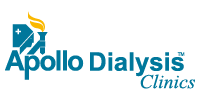Patient-Centric Care in Nephrology: Enhancing Engagement and Outcomes
Kidney disease is a tough condition that affects the quality of life of a person very drastically. Such management requires quite an extensive teamwork approach, whereby the patient is an integral part of his care. Patient-centered care in nephrology has emerged as an innovative approach toward obtaining better outcomes and enhancing the engagement of patients in their own care. It thus embraces the highly valued contributions related to the needs, preferences, and beliefs of patients. Its most direct benefit is to nephrology since it necessitates patients’ active involvement with healthcare providers-managed approaches, hence shifting from disease-focused models to patient-centered ones about chronic conditions.
What is Patient-Centric Care in Nephrology?
- The care patient-centered places the patient at the heart of the process in healthcare. It ensures that values, needs, and preferences of the patient are respected. This is applicable for many conditions in nephrology that require long-standing care-like chronic kidney disease (CKD) and end-stage renal disease (ESRD). A shift in focus moves from a disease-centered model to a patient-centered one, allowing space for active participation and collaboration with the patient by health care professionals.
- The operational features of this model include open communication, trust-building mechanisms, and education around the decision-making process that empowers patients to take ownership for decisions around health care. This process of engagement enhances the clinical outcomes and patient experience.
Best Practices to Improve Patient Engagement
Individualized Care Plans
- Every patient’s experience with kidney disease is different — and so should be their care. Creating individualized care plans based on a patient’s medical history, lifestyle, and preferences makes them feel understood and appreciated. These plans should include personalized dietary guidance, medication regimens, and exercise prescriptions.
- A patient with CKD may need a renal-friendly diet. Rather than offering blanket guidance, health care providers can work with dietitians to design meal plans that account for the patient’s cultural food preferences, making them easier and more relevant to stick to.
Empowering Patient Education
- Education as empowerment for the patient is one of the cornerstones of patient-centered care. In other words, when patients know a lot about their conditions, available treatments, and likely outcomes, they are much more likely to be engaged in their care. Brochures, videos, and digital apps are all easy and accessible ways to educate patients while we learn to use less complex medical terms.
- An example is the nephrologist who discusses the pros and cons of dialysis versus kidney transplantation, thereby allowing the patient to make informed choices. Education should include critical hands-on information, including how to track fluid intake or recognize early signs of complications so that patients can maintain their health.
The Role of Shared Decision-Making
- Shared decision-making involves decisions being jointly made by patients and healthcare providers concerning the most suitable treatment options. This principle is particularly relevant in nephrology, where many decisions have considerable implications for patients’ lives, including initiating dialysis, choosing a particular dialysis modality, or exploring transplantation.
- Providing such discussions with patients enables providers to respect the autonomy of their patients and ensure that the selected course aligns with what the patient intends to achieve and values. A young professional with CKD may wish to maintain her career during treatment, which would steer decisions toward a dialysis modality that provides flexibility, likely home hemodialysis.
- Such discussions need open, empathetic dialogue. Providers must actively listen to their patients, engage in shared decision making, and present concerns and options in an even-handed, non-judgmental manner. Decision aids — visual charts, for example, or interactive apps — make the process even more user-friendly.
Enhancing Quality of Life
- Caring for a person with kidney disease goes beyond clinical care. Physical health and mental health have separate wings in the medical world, but illness’s impact on overall life quality doesn’t necessarily show in the duality of opinion. A holistic view of all these characteristics is essential for patient-centered medicine.
Psychosocial Support
- Dealing with kidney disease can also bring anxiety, depression, or feelings of isolation. Addressing psychosocial support as a part of the care model (e.g., counseling, support groups) may assist patients in dealing with these issues. Support programs, wherein patients convey common experiences and coping mechanisms, can be especially gratifying in developing a sense of community.
Financial Guidance
- It’s very expensive to manage kidney disease. Providing patients with information about insurance coverage, government aid programs or hospital financial assistance can relieve this burden and let them keep their focus on their health.
Lifestyle Interventions
- The lifestyle interventions are described to improve physical as well as emotional well-being, therefore, quality of life of patients as by engaging people through sports, mindfulness practices, or even hobbies. The message communicated to health care providers is to encourage patients to activities that should reflect their interests and involve their health goals.
Measuring Success in Patient-Centric Care in Nephrology
- Patient-centered medicine in the field of nephrology can be assessed by the following parameters (e.g., increased treatment compliance, improved clinical results, increased patient satisfaction). Patient feedback is also a vital part of the development of care delivery. Satisfaction questionnaires, talk groups, or individual interviews are useful for identifying what is and, consequently, what is not working well.
- In addition, creating a climate of lifelong learning in healthcare professionals ensures they stay responsive to dynamic patients’ needs and preferences.
Conclusion
- Patient-centered care is a philosophy that engages patients by making them feel valued, empowered, and engaged in their health journey. Through individualized care plans, patient education, shared decision-making, and holistic support, nephrology can then transcend traditional boundaries to provide the best possible treatment outcomes and quality of life for kidney disease patients.
- These strategies lead to the emergence of a collaborative situation in which patients join hands with their medical providers in pursuit of what has been agreed upon by both-the effective management of kidney disease while maintaining the primacy of the patient’s dignity and well-being.

